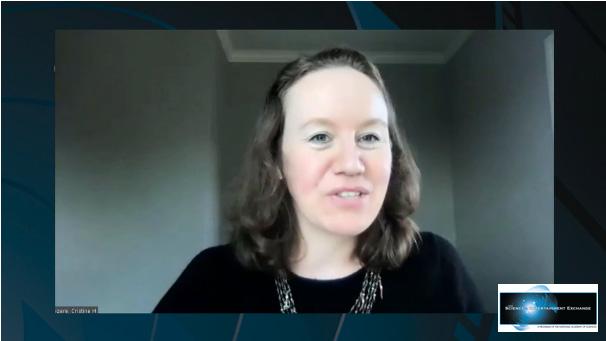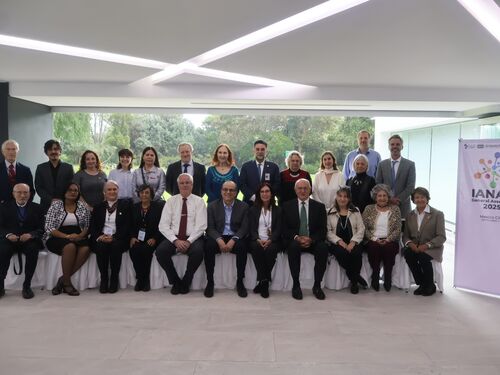The Resilience of Ritual
Feature Story
By Sara Frueh
Last update August 26, 2021
Psychologist Cristine Legare explores why rituals matter and how the pandemic revamped them
Among the many things COVID-19 has turned upside down are human rituals, from everyday rituals like shaking hands to profound ones such as weddings and funerals.
The disruption made our rituals and their importance more evident, explained Cristine Legare, a psychologist and director of the Center for Applied Cognitive Science (CACS) at the University of Texas at Austin. “It’s really revealed how fundamental ritual is to human psychology, human nature, and human culture.”
As a researcher, Legare studies rituals — which she defines as “socially shared, socially stipulated practices” — and what they reveal about humanity.
“There’s a very good reason that people spend time, money, and energy engaging in rituals, in the face of COVID and in general,” said Legare, who spoke at a recent webinar hosted by the Science & Entertainment Exchange of the National Academy of Sciences. “They’re essential to meeting our physical, social, and psychological needs — particularly in the face of adversity.”

The Ubiquity of Ritual
While we often associate the word “ritual” with religious practices, said Legare, in reality ritual is ubiquitous. “We often don’t recognize that we’re engaging in rituals because they’re such a deep and natural part of our lives.”
Even academic environments are ritualized, she noted; they are based on a shared consensus that one person should stand at the front of the room and everyone else should be quiet, followed by a protocol for asking questions.
We often don’t recognize that we’re engaging in rituals because they’re such a deep and natural part of our lives.
Rituals are not irrational or arbitrary but rather are highly functional, said Legare. “Absolutely all human cultures have rituals, and there’s a good reason for that.”
For example, all cultures have rituals to mark critical rites of passage and life events, such as birth, childhood, adolescence, puberty, marriage, work-related rituals, childbirth, and death, she said. These rituals serve important purposes, such as initiating a new human into a family or a community, or helping an adult transition to a new form of identity, such as parenthood.
Rituals also allow a community or a family to have a shared set of activities that promote bonding and cooperation and solidarity. “It’s really a deep part of people’s identity,” said Legare. “It’s part of how they think about their family, their culture, their ethnicity, their religion.”
Even among those who share the same faith or ethnic background, small differences in rituals can seem insurmountable, added Legare, relaying the example of a friend’s deep disagreement with her new husband over whether presents should be opened on Christmas Eve or Christmas Day. “There was a lot of family strife surrounding something that seems pretty trivial.”
Why do these small differences matter so much? Rituals help support group identity and preserve communities over time – which means they aren’t easily altered, said Legare. “Resisting change is part of the structural fabric of ritual.”
Reshaping Rituals Big and Small
If rituals are built to resist change, what happens when massive change — like a pandemic — is forced upon them?
We responded not by scrapping our rituals but by modifying them, which attests to their importance, said Legare. “The functions that these rituals serve are still things that humans need, that we crave.” For example, rites of passage — birthday parties, baby showers, funerals — have moved online. “We still need these critical life events to be commemorated, to be respected.”
One reason the pandemic has been uniquely difficult is that it’s a normal reaction to gather together in times of uncertainty and hardship — something made difficult or impossible by the social distancing needed to slow the spread of disease, said Legare. “It explains why rather than just omitting a lot of these rituals, we have changed and transformed them.”
Rituals are particularly helpful in situations of uncertainty or danger; they can help us reestablish a feeling of control, explained Legare, and theories hold that rituals support our physiological and psychological drive to reach homeostasis — a feeling of stability and balance. Reading or praying together in collective settings, for example, can have powerful psychological effects in reducing anxiety. “It’s a big part of why we find engaging in synchronous, collective activity so soothing,” she said.
In addition, Legare noted, anthropologists believe that rituals may be part of a hazard-precaution system — a psychological system geared toward responding to threats in the environment, such as pathogens and contamination. “Since reducing contamination and promoting hygiene is essential to human health and survival, using rituals to spread these practices is really useful,” she said. “So it’s absolutely not a surprise that we ritualize hand-washing.” This is nothing new, she added; for very functional reasons, hygiene is part of both secular and religious rituals around the world.
Which of our altered rituals will last even after the pandemic subsides? Some of the hygiene practices may stick, along with greater awareness of ourselves as potentially infectious agents, Legare predicted. Social distancing, on the other hand, is likely to evaporate. “We like physical contact, we like intimacy.”




